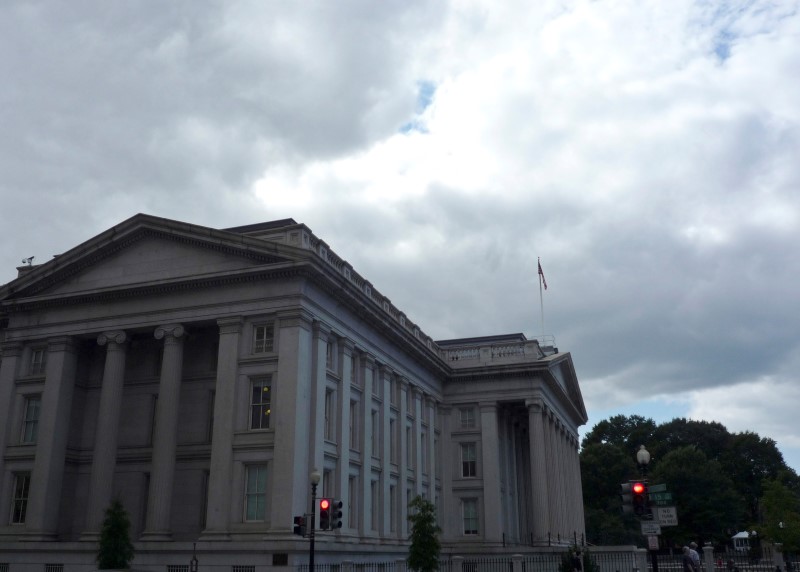By Gertrude Chavez-Dreyfuss
NEW YORK (Reuters) - Foreigners bought U.S. Treasuries in July after selling them for two straight months, according to U.S. Treasury department data released on Tuesday, a precursor to the sector's steep rally in August.
The month of July culminated in the Federal Reserve cutting interest rates on July 31. The following month, trade tensions ramped up between the United States and China as they threatened to impose tariffs on one another, fueling a dramatic surge in U.S. Treasury prices.
Foreign flows into U.S. Treasuries showed an inflow of $10.95 billion in July, from outflows of $7.71 billion and $32.79 billion in June and May. Offshore private investors purchased Treasuries totaling $42.39 billion during the month, offsetting selling of $31.12 billion by foreign official accounts.
"This helps provide a strong backdrop to the August rally in Treasuries," said Jon Hill, senior rates strategist at BMO Capital Markets in New York.
"What we saw was that $31 billion outflows from foreign official accounts were overwhelmed by private demand. Some of the private demand going into the Fed cut figured that as the economy goes into the Fed's easing cycle, it might be a good idea to try to position for long duration," he added.
U.S. benchmark 10-year yields started July at 2.033% (US10YT=RR), collapsing by more than 50 basis points at the end of the month to 1.506%.
Data also showed that Japan topped China as the largest non-U.S. holder of Treasuries in July for a second straight month after boosting its holdings to a nearly three-year peak.
Japan's holdings of U.S. Treasuries rose to $1.130 trillion in July from $1.122 trillion in June. Its July holdings were the largest since October 2016.
China was the second largest owner of U.S. Treasuries with $1.110 trillion in July, compared with $1.112 trillion the previous month. China's holdings of Treasuries were the smallest since April 2017.
China has been reducing its Treasury securities portfolio for some time, but most analysts see an aggressive reduction of its holdings as a trade weapon, a remote possibility at best. There is no evidence Beijing is seriously looking to flood markets with its U.S. bonds, analysts said.
Data also showed that foreigners bought U.S. stocks for a second straight month in July, amounting to $24.26 billion, from inflows of $26.35 billion. Buying in June and July came after 13 straight months of selling.
